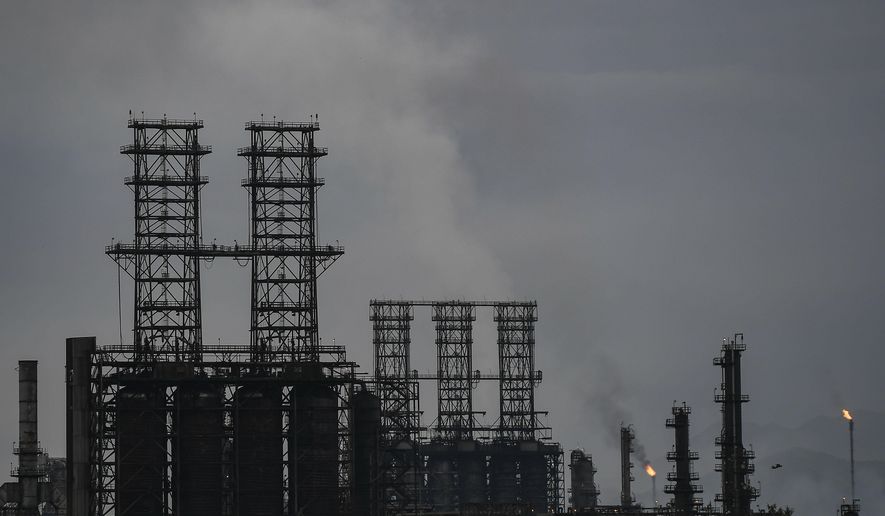The White House will restart sanctions on Venezuela’s oil and gas industry that were put on hold six months ago to encourage President Nicolas Maduro to support free and fair elections in his country.
The temporary sanctions waiver, which expires on Thursday, allowed Mr. Maduro’s government to export crude oil to the U.S.
Biden administration officials said Wednesday that Caracas has made some progress on elections, including updating the country’s electoral registry and initiating a process to allow international election observers into the country. But much more needs to be done, White House officials said.
The U.S. granted the six-month waiver, known as General License 44, in October after representatives for Mr. Maduro signed an agreement in Barbados to allow the country’s main opposition leader, Maria Machado, to run in Venezuela’s upcoming presidential election.
Although she won the opposition primaries last year, Ms. Machado can’t run because Mr. Maduro’s government has barred her from holding public office. Her replacement, 80-year-old academic Corina Yoris, also was unable to register her candidacy.
“Although the Venezuelan authorities have met some key commitments, they’ve also fallen short in several areas: the disqualification of candidates and parties on technicalities and what we see as a continued pattern of harassment and repression against opposition figures and civil society,” a Biden administration official told reporters Wednesday.
The White House loosened the Trump administration-imposed economic restrictions on Venezuela in a bid to offset a rise in crude oil prices. That rise was partly driven by sanctions placed on Russia after it invaded Ukraine in February 2022.
“Any activity that was previously allowed under General License 44 with respect to the oil and gas sector of Venezuela will need to be wound down by May 31,” a senior administration official said. “Any new activity that was previously covered by General License 44 will no longer be allowed.”
On Wednesday, Mr. Maduro criticized the Biden administration’s decision to withdraw sanctions relief, saying it wouldn’t stop Venezuela from following its own political and economic path.
“Nothing is going to stop us because we are no one’s colony,” he said on X. “The empire trying to do us harm does double damage but our country has emerged stronger.”
The Treasury Department’s Office of Foreign Assets Control — which administers government sanctions — issued General License 44A. It will allow companies until May 31 to wind down any of their operations that were part of GL 44. Businesses will still be able to apply for more narrowly focused export licenses related to Venezuela’s oil and gas industry.
“If folks took on any new activity that needed General License 44 to be compliant with our sanctions, it’s that activity that we would expect to be wound down,” senior administration officials said.
Sen. Dan Sullivan, Alaska Republican, and six other GOP lawmakers sent a letter last week to the White House urging the Biden administration not to ease up on sanctions imposed on the Venezuelan government.
“History has proven time and time again that appeasing dictators does not work,” they wrote in the letter. “We must not cede American leverage by lifting U.S. sanctions while the Maduro government deliberately disregards its obligations.”
Not renewing the sanctions relief for Venezuela’s oil and gas industry doesn’t necessarily mean the Biden administration no longer believes the country can hold competitive elections. The White House says the U.S. will engage with all pertinent stakeholders, including representatives of the Maduro government and the democratic opposition.
“The Barbados agreement still represents the best available path for a more democratic, secure, and prosperous Venezuela,” an administration official said.
• Mike Glenn can be reached at mglenn@washingtontimes.com.




Please read our comment policy before commenting.